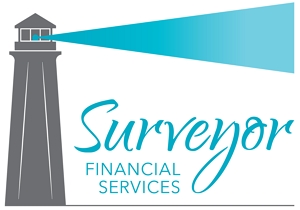The ATO is cracking down hard on GST frauds after finding a significant number of taxpayers falsely claiming GST refunds.
The Serious Financial Crime Taskforce and Australian Federal Police (AFP) have executed numerous warrants against suspects, with a GST fraudster recently jailed for three years.
The ATO has warned it has zero tolerance for these types of fraud and has put in place a strategy to identify and pursue individuals suspected of inventing fake businesses to claim false refunds.

Falsely claiming a GST refund
GST refund fraud involves claiming a tax refund or other benefit by providing false information to the tax office. It involves more than careless or accidental mistakes, and is undertaken in a deliberate or deceitful way.
In the recent spate of GST frauds, individuals have invented fake businesses and lodged a fraudulent Australian Business Number (ABN) application. They then submit fictitious business activity statements (BAS) in an attempt to gain a false GST refund.
Detailed information about how to undertake these types of frauds has been circulating as online advertising and content, particularly on social media.
Rules for claiming GST credits
It’s important to understand the rules in this area. Registering for an ABN and applying for GST refunds when you do not own or operate a business – or are ineligible – is fraud.
You can only claim GST credits on the business portion of a purchase and cannot claim GST on private expenses (such as food or entertainment). Discounted prices must be used when claiming GST credits, even if the discount does not appear on an invoice.
GST credits can be claimed upfront for purchases under hire purchase agreements entered into after 1 July 2012 only if your business accounts for GST on a cash basis.
Purchases that do not include GST in the price (such as bank fees and stamp duty), GST-free items (such as basic food), imported goods if you are not the importer, and purchases between entities within a GST group are all ineligible for GST credits.
Warning signs for GST fraud
The ATO has made it clear if you are not operating a business, you do not need an ABN and should not be lodging a GST return. The tax regulator has significant data matching capabilities enabling it to detect patterns in taxpayer behaviour that highlight potential tax frauds.
Backdating your business registration so you can apply for a refund is another red flag and will highlight you as a potential high risk in the tax office’s systems.
A key point to remember is the ATO does not offer loans or administer COVID-19 disaster payments. Advertisements offering a way to get these types of loans from the ATO by registering fake businesses are a “rort”.
If you are caught
The ATO is urging anyone involved in a GST fraud to come forward on a voluntary basis, rather than face tougher consequences later.
If you are involved in a fake GST arrangement, the first step is to contact the ATO or your accountant so they can assist you to work through various self-help options. You may be able to correct your situation by revising your BAS, cancelling your ABN and GST registration, and setting up an arrangement to repay the GST refund.
Taxpayers caught engaging in GST fraud are liable to repay the entire fraudulently-obtained refund, regardless of whether they paid someone to lodge a BAS on their behalf. Making false declarations can also impact your eligibility for other government payments.
Fraud and compromised IDs
Selling or sharing your myGov credentials may result in other people accessing your personal information and using it for their financial gain.
If you have become involved in a GST fraud because your identity was compromised, you should contact the ATO immediately so additional controls can be placed on your tax account.
Taxpayers who have given their myGov details to a criminal should contact the ATO so it can assist them to protect their identity from being used to commit further crimes, including future tax crimes undertaken in their name.
Contact us on Phone 02 9548 3703 if you’d like to discuss this further.
Important: This provides general information and hasn’t taken your circumstances into account. It’s important to consider your particular circumstances before deciding what’s right for you. Although the information is from sources considered reliable, we do not guarantee that it is accurate or complete. You should not rely upon it and should seek qualified advice before making any investment decision. Except where liability under any statute cannot be excluded, we do not accept any liability (whether under contract, tort or otherwise) for any resulting loss or damage of the reader or any other person.
Any information provided by the author detailed above is separate and external to our business and our Licensee. Neither our business nor our Licensee takes any responsibility for any action or any service provided by the author. Any links have been provided with permission for information purposes only and will take you to external websites, which are not connected to our company in any way. Note: Our company does not endorse and is not responsible for the accuracy of the contents/information contained within the linked site(s) accessible from this page.


